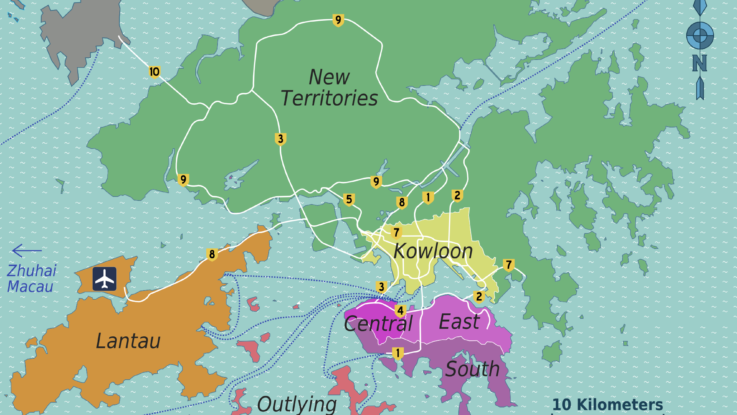
On June 30, Beijing enacted a National Security Law that, in effect, ended any guarantee of Hong Kong’s separate political system. Today, the other shoe dropped.
Hong Kong police will be authorised to conduct searches at private properties without a warrant, restrict suspects’ movements, freeze their assets, intercept communications and require internet service providers to remove information, as the city’s leader handed more powers to the force for implementing the new national security law.
On Monday night, the government gazetted the details of Article 43 of the controverisal legislation, which criminalises secession, subversion, terrorism and foreign interference. It came after the first meeting of the Committee for Safeguarding National Security of the HKSAR, chaired by Chief Executive Carrie Lam.
Top Hong Kong pro-democracy activist Joshua Wong called on the international community Monday to “stand with” the restless city, as authorities ordered schools to remove books for review under a sweeping new security law imposed by Beijing.
China enacted the law a week ago, sending a wave of fear through Hong Kong as it criminalised certain opinions such as calls for independence or autonomy.
Wong, who at age 23 is one of the city’s most prominent activists, was speaking outside a court where he and fellow campaigners were being prosecuted for involvement in civil unrest that rocked the international finance hub last year.
“We still have to let the world know that now is the time to stand with Hong Kong,” he told reporters, ahead of his court appearance on Tuesday.
“With the belief of Hong Kong people to fight for freedom, we will never give up and surrender to Beijing.”
(To their credit, US social media companies have suspended data sharing with Hong Kong authorities.)
One important feature of the crackdown – which may receive insufficient attention – is what it says about Beijing’s calculations. There were, roughly speaking, maybe four forces that used to protect Hong Kong’s special status. One was Beijing’s fear of instability, but it’s not surprising that it now sees democracy activism in Hong Kong as a bigger threat than fallout from a crackdown.
Another was Taiwan. Respect for Hong Kong’s special status provided a “proof of concept” for Taiwan’s reintegration through federacy, in which Taiwan would keep its own democratic system. Beijing’s decision indicates that it no longer sees that pathway as viable, that it sees the threat posed by instability in Hong Kong as more important, or both.
Yet another was fear of international disapproval and sanction. II wouldn’t be surprised if Beijing isn’t terribly worried about that. U.S. foreign policy is a mess. Beijing knows that it has a good chance of limiting European Union action by putting pressure on economic partners like Greece. China has already demonstrated that it can convince Belt and Road Initiative partners to run interference for its abuses of human rights, at it did in the case of its Xinjiang policy.
The final major restraint stemmed from Hong Kong’s importance as a financial hub. Hong Kong’s legal system affords foreign investors protections that they lack on the mainland. In fact, when I was in China a few years ago It also handles a significant amount of capital flows that move back and forth from the mainland, which allows Chinese elites to… well, you can guess. Even though, Hong Kong has seen its role in the Chinese economy decline, Beijing has still taken on real economic risks in subverting Hong Kong’s system.
Developments in Hong Kong add another chapter to what’s been, overall, a terrible decade for liberal democracy. We are living in a period of waxing authoritarianism. If he defeats Trump this year, Biden and his foreign-policy team will need to make some difficult decisions about what the United States should do about this trend. The problem is that Washington’s international leverage has eroded considerably over the last fifteen years, but at least the United States can start “showing up” (metaphorically and literally) rather than being largely AWOL. Indeed, the Trump administration has a poor record of supporting human rights at home and abroad; Trump himself appears untroubled by, if not favorably inclined toward, authoritarian abuses.
Regardless, this is a dark day for the people of Hong Kong.
(cross-posted at Lawyers, Guns and Money)

